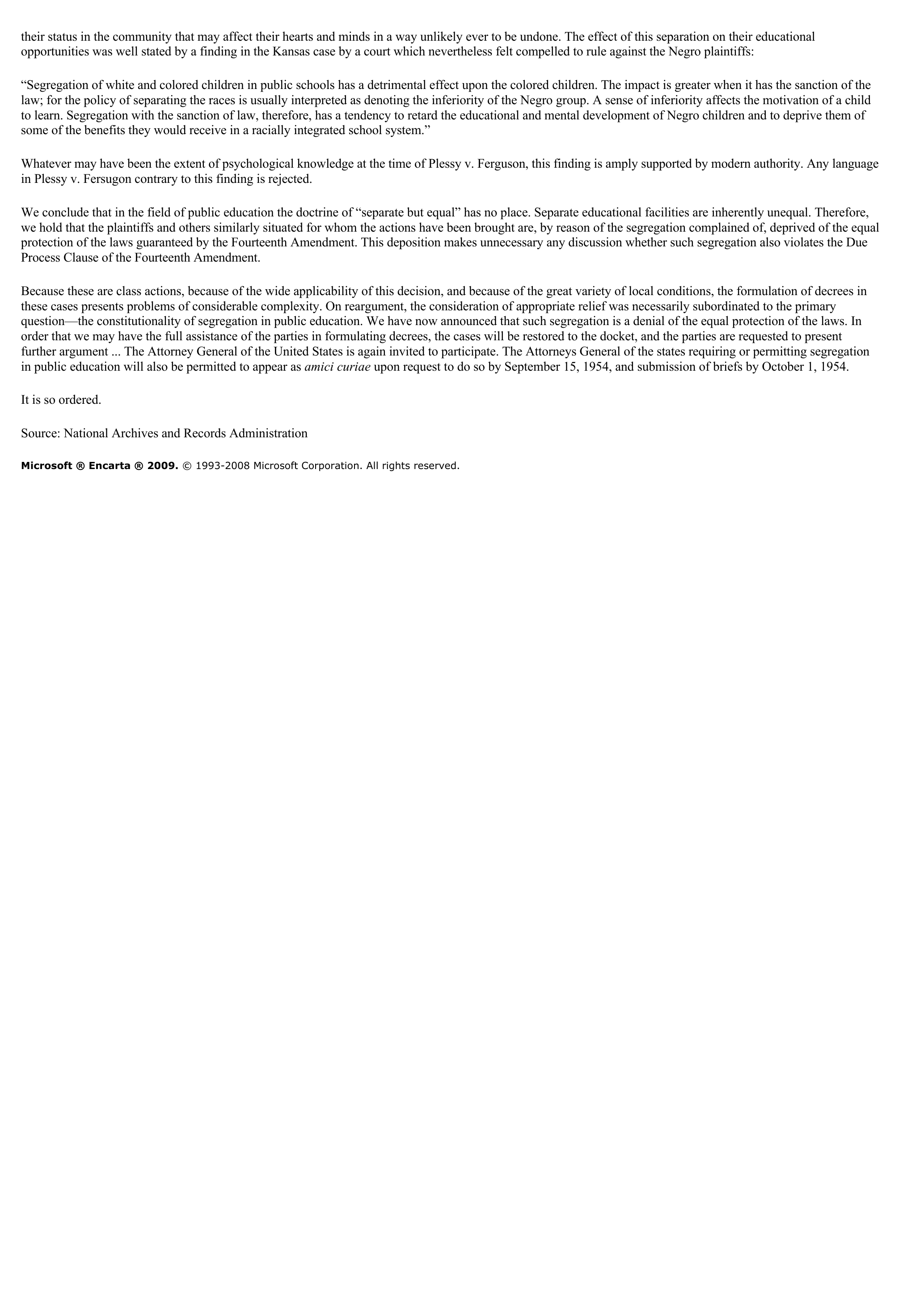From Brown v.
Publié le 26/05/2013

Extrait du document
«
their status in the community that may affect their hearts and minds in a way unlikely ever to be undone.
The effect of this separation on their educationalopportunities was well stated by a finding in the Kansas case by a court which nevertheless felt compelled to rule against the Negro plaintiffs:
“Segregation of white and colored children in public schools has a detrimental effect upon the colored children.
The impact is greater when it has the sanction of thelaw; for the policy of separating the races is usually interpreted as denoting the inferiority of the Negro group.
A sense of inferiority affects the motivation of a childto learn.
Segregation with the sanction of law, therefore, has a tendency to retard the educational and mental development of Negro children and to deprive them ofsome of the benefits they would receive in a racially integrated school system.”
Whatever may have been the extent of psychological knowledge at the time of Plessy v.
Ferguson, this finding is amply supported by modern authority.
Any languagein Plessy v.
Fersugon contrary to this finding is rejected.
We conclude that in the field of public education the doctrine of “separate but equal” has no place.
Separate educational facilities are inherently unequal.
Therefore,we hold that the plaintiffs and others similarly situated for whom the actions have been brought are, by reason of the segregation complained of, deprived of the equalprotection of the laws guaranteed by the Fourteenth Amendment.
This deposition makes unnecessary any discussion whether such segregation also violates the DueProcess Clause of the Fourteenth Amendment.
Because these are class actions, because of the wide applicability of this decision, and because of the great variety of local conditions, the formulation of decrees inthese cases presents problems of considerable complexity.
On reargument, the consideration of appropriate relief was necessarily subordinated to the primaryquestion—the constitutionality of segregation in public education.
We have now announced that such segregation is a denial of the equal protection of the laws.
Inorder that we may have the full assistance of the parties in formulating decrees, the cases will be restored to the docket, and the parties are requested to presentfurther argument ...
The Attorney General of the United States is again invited to participate.
The Attorneys General of the states requiring or permitting segregationin public education will also be permitted to appear as amici curiae upon request to do so by September 15, 1954, and submission of briefs by October 1, 1954.
It is so ordered.
Source: National Archives and Records Administration
Microsoft ® Encarta ® 2009. © 1993-2008 Microsoft Corporation.
All rights reserved..
»
↓↓↓ APERÇU DU DOCUMENT ↓↓↓
Liens utiles
- dissertation ulysse from bagdad
- From West to East
- ARTHUR MERWYN ou Mémoires de l’année 1793(résumé & analyse) de Charles Brockden Brown
- EXÉCUTION DE JOHN BROWN (L’) (résumé)
- Being Brown

































